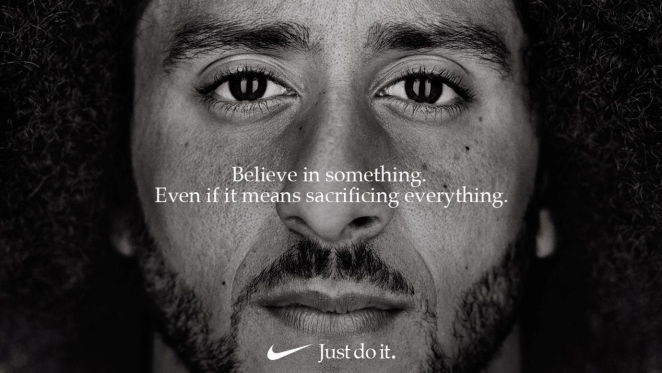Love the new Conscious products made-in H&M. At least 50% of Conscious products is made from sustainable materials! And the remaining half, well… We don’t care about that, do we?
H&M often makes the headlines for all the wrong reasons, and some time ago, they did it again after announcing new products to join their “Conscious” collection. The sole idea of a “Conscious” collection sounds quite strange to me – what does it even mean to have a “Conscious” collection? What about the rest of the offering by H&M, and why is that one not being addressed at all?
If you’ve been with us for at least the past few months, you may know my personal view on Greenwashing and any kind of subtle way to con consumers into believing your business is healthy for the planet. But if you are approaching purpose that way, rest assured that it will feel tokenistic and, ultimately, fake.
To say that 2020 was an interesting year is an understatement. Coronavirus aside, we saw consumers becoming more conscious about the environment, the boom of the Black Lives Matter (for all tragic reasons, sadly) and generally brands embracing purpose in a more human, authentic way. To ignore this huge push for brand purpose going ahead is certainly going to set you up for some huge backlash down the line.
Purpose isn’t just a nice tick box to offer your clients or consumers. And here’s why.

Image credit: Jonas Roth for WWF
A matter of trust
You really, really don’t want to be on the wrong side of social media when the next PR crisis happens. In the digital age, consumers are increasingly more conscious about social causes and want their favourite brands to take a clear stand in some of the social issues that matter the most. That is also why we at Creativepool introduced the Social Good category in this year’s edition of The Annual. It is now more important than ever for the entire industry, from the freelance designers to the top-tier agency, to bring some positive change into the world.
However, there’s a correct way to do this. Obviously you can’t just jump on the bandwagon hoping to win another segment of conscious audience. If you do, you’ll be called out and you’ll find yourself in a PR crisis in no time. Brand purpose must be holistic. It must embrace different departments and layers of your organisation, from HR to salary to your manufacturing process. Marketing budget is only one part of the picture, and a rather small one at that.
Example at hand: McDonald’s loves to boast the fact that its meat comes from British farmers here in the UK. However, when you look at their HR division, you can hardly make out something too positive about the company, with employees demanding higher minimum salaries across the US as we speak.
You just can’t be advocating for sustainability when your diversity and inclusion programme is years behind. Just like you can’t make a “Conscious Collection” if you are not being as transparent or interested about the rest of your lines. In the long run, this is bound to destroy consumer trust. And that can happen incredibly quickly, these days.
To gather some external views on the matter, I reached out to HarrimanSteel Co-Founder Nick Steel to discuss this topic. According to Nick, “Obviously jumping on a cause without due diligence will erode trust. (Primark selling Pride merchandise made in Turkey and Bangladesh where homosexuality is suppressed and/or illegal is a good – or should we say, terrible – example.) But standing for something genuine, that the brand lives and breathes, is long-term, progressive thinking.”
Why does brand purpose matter?
But why do we even care about brand purpose in the first place? Isn’t Adland’s role to just help sell products? Why should we even bother with that?
Well, for the same reason why we are happy whenever someone calls out an organisation’s flaws and we demand justice on social issues. Governments and media have failed at that for too long. Consumers are looking to find support for their own truths in the brands with which they identify the most. I do that. And I’m sure you do it too.

This campaign was so strong and powerful that it doesn't need any explanation. And it fits within Nike's commitments too!
Nick continues, “It’s no longer enough to simply sell. Now, more than ever, consumers need their favourite brands to speak for them because, increasingly, governments and media can’t or won’t. To dismiss this need is a short-term survival mentality that is ethically and professionally misguided.”
Nick strongly believes that brands and agencies have a moral responsibility to “use creativity to inspire, educate and drive change. Numerous studies have found that people prioritise and are loyal to companies that authentically represent their values. Profit and purpose can be mutually reinforcing. Super successful brands like Patagonia have their ethos embedded into their DNA.”
Looking for something more human
If there’s one thing that Covid-19 has taught us, it is the value of authenticity and empathy. Technology enabled us to connect even while apart, and being exposed to images of the pandemic made us more aware of how much we should value those connections.
If brands were once sitting in their ivory tower, looking at consumers from a broadcasting point of view, it is now time for them to climb down and join the consumers in what they care the most. People are not looking for suits and ties telling them what to do; they are looking for fellow humans, authentic figures they can follow in making a positive impact. They are looking for meaning.
Nick concludes: “The pandemic has offered brands and agencies an unprecedented opportunity to re-set. To measure success differently. Forget polishing that ivory tower, people need to strive for something more meaningful. That can be found in making a positive impact and in building deep, long-lasting connections with your audience.”
Purpose shouldn't be used just to increase sales. If you try and do that, you will suffer the consequences. You must believe in it. Don’t create a purpose-led campaign for a brand that has no interest in growing in that sense. We’ve all seen what happened when Gillette tried. We’ve all seen what happens every time someone tries to do the same thing, with utterly depressing hypocrisy.
Your approach to purpose, whether you be an agency or a brand, has to be holistic and coherent across all aspects of your business. From inclusivity to diversity, sustainability and equal rights.
Consumers are not stupid. If you think they are, or that they can be, you better be prepared to face the consequences.






